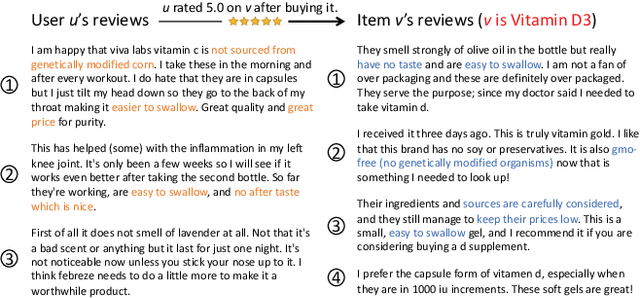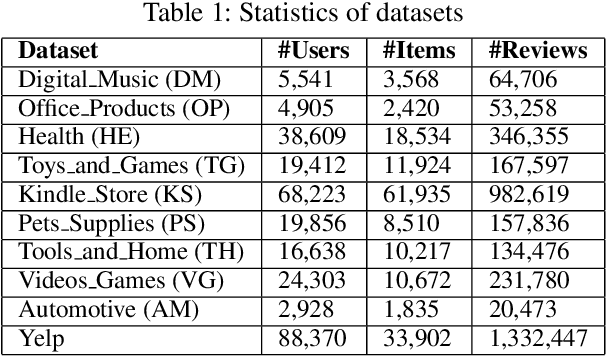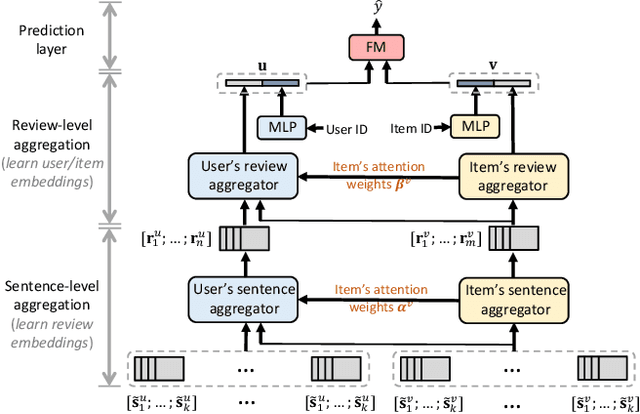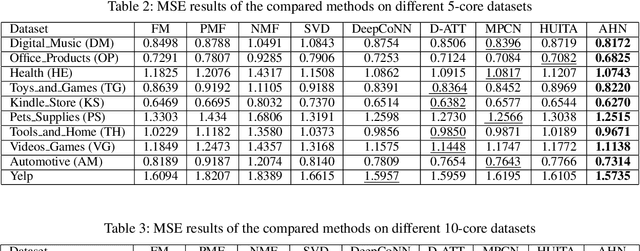Asymmetrical Hierarchical Networks with Attentive Interactions for Interpretable Review-Based Recommendation
Paper and Code
Dec 18, 2019



Recently, recommender systems have been able to emit substantially improved recommendations by leveraging user-provided reviews. Existing methods typically merge all reviews of a given user or item into a long document, and then process user and item documents in the same manner. In practice, however, these two sets of reviews are notably different: users' reviews reflect a variety of items that they have bought and are hence very heterogeneous in their topics, while an item's reviews pertain only to that single item and are thus topically homogeneous. In this work, we develop a novel neural network model that properly accounts for this important difference by means of asymmetric attentive modules. The user module learns to attend to only those signals that are relevant with respect to the target item, whereas the item module learns to extract the most salient contents with regard to properties of the item. Our multi-hierarchical paradigm accounts for the fact that neither are all reviews equally useful, nor are all sentences within each review equally pertinent. Extensive experimental results on a variety of real datasets demonstrate the effectiveness of our method.
 Add to Chrome
Add to Chrome Add to Firefox
Add to Firefox Add to Edge
Add to Edge